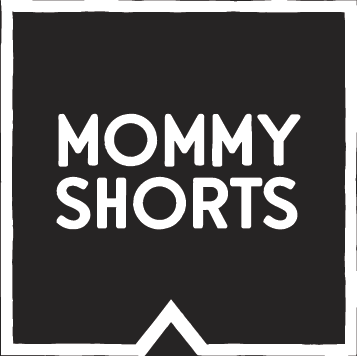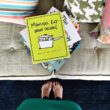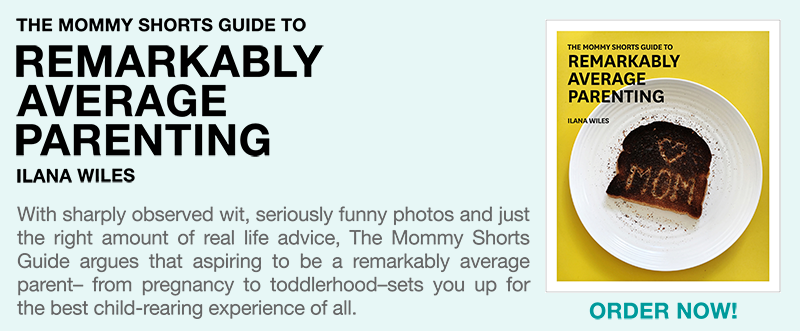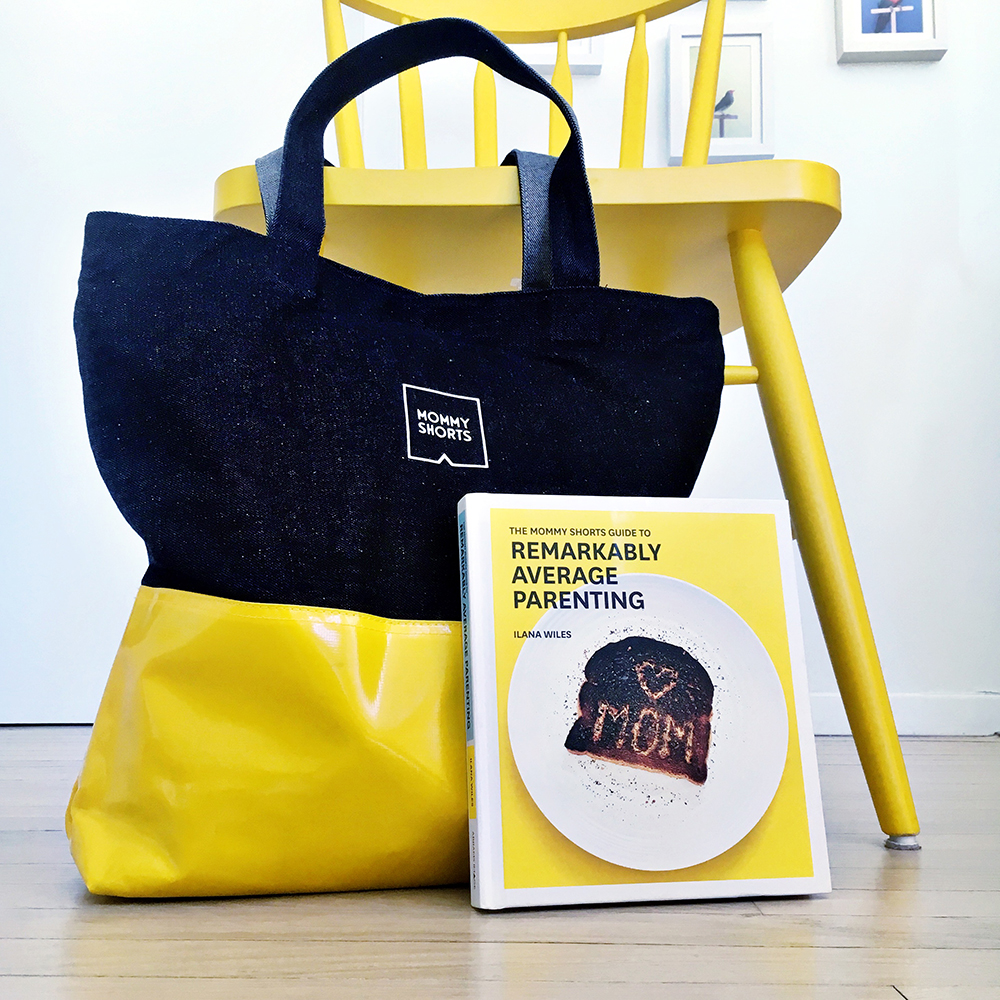Yesterday, I spoke on a panel about how to be an influencer that brands want to work with in 2020. When I signed on to be part of this panel, back in 2019, none of us had any idea what 2020 would actually look like. For one thing, we thought the panel was going to be in-person at the Mom 2.0 Summit, but instead it was virtual.
The very first question was thrown to me. It was something like— “Has everything that’s gone on this year, like Covid, the Black Lives Matter protests, etc; affected what you share on your social platforms? Ilana?”
Uhhh. That’s a really big complicated question.
I think I blabbed on for about a half hour, because of course, the events of 2020 have affected everything.
Let’s start with COVID. I live in New York City, the epicenter of the first big outbreak in the United States, so if you remember, there were so many eyes on the NYC influencers when this all started. I actually think I got lucky that when I got sick at the end of March, I chose to strictly observe my doctor’s quarantine orders, even though I had a mild case and wasn’t able to get a COVID test. Honestly, at the onset, I was worried that people would think I was playing the victim and making the pandemic all about me, but instead I became an example of someone who was trying to exercise caution, play by the rules and do the right thing. I can’t stress enough that it could have easily gone the other way. There were a few people in my comments talking about how I shouldn’t have left NYC and others talking about how privileged I was to have a second home. I was grateful most people were supportive. I felt especially lucky that we had gone to our house before the orders to stay in place.
Throughout the summer, I thought about every single thing we did and each person we saw, as well as what I shared publicly, because suddenly being a so-called “influencer” was about way more than what brands I use. It was about demonstrating behavior that could potentially help slow the curve of a global pandemic. I was terrified of doing the wrong thing and being taken down like I had seen happen to a few other mom influencers I follow. There was an article in the New York Times called “Flight of the Influencers.” which criticized NYC influencers, like Naomi Davis and Arielle Charnas, for leaving. I can’t even tell you how fast my heart beat when a friend texted me a link with the words, “you’re in this.” Thankfully, I was listed in the first paragraph as someone who had set a good example, before they tore apart the people who had not.
There was a short respite between when I got out of my guest room quarantine (yes, I am aware I am privileged to have a guest room) and when the Black Lives Matter protests started. In real life, a big movement was taking place. Online, it felt like another social media test. The Instagram reaction was to post a black square, so I posted one too, thinking that was the “right” thing to do. I posted about diversity on my blog quite often, particularly in children’s books, so I thought I was doing a pretty decent job already. Then there was backlash to the square, many calling it “performative allyship.” I wondered if I should take it down. I wondered what I should post next. I wondered if I should post at all. I wondered if my feed would ever go back to normal. I read everything I could about what I was “supposed” to do. There was new terminology and concepts that confused me. I remember reading and rereading a post from Rachel Cargle who had highlighted the issues with one white woman’s message to her, trying to really understand what this woman had done wrong. I messaged white friends who seemed to get it, so they could explain it to me, because I also read that I wasn’t supposed to ask a Black person to do the work for me. The more I looked into things, the more uncomfortable I got, which I realized was the point. None of this was pleasant. That’s why so many chose to stay in their bubble. That’s the privilege. I decided that the black square was performative if that’s all you did. Or worse, if it masked what was really going on behind the scenes. I watched three female owned brands I followed and admired— Bando, Manrepeller and The Wing— all get blasted for racism that existed within their companies behind their black squares. The founders of both Bando and Manrepeller stepped down. The Wing shut down completely.
I tried to examine what was real and what I was putting out there for performance sake. Was I really invested in making change? Or was I just trying to do the “right” thing because I feared what would happen if I didn’t? I decided that everything I do has a little bit of performance in it; that’s my job. But if being performative actually helped me do my research and made me a better, more informed person, maybe that wasn’t the worst thing in the world. Black squares weren’t bad if you followed them up with continued education and action. Posting a black square along with everyone else isn’t going to create any waves, but continuing to post about systemic racism, implicit bias, how to raise anti-racist kids, etc; even when most influencers had moved on, even when it started to annoy the followers who dismissed the intrusion initially, that’s when it’s starts becoming more meaningful. So, with both a genuine interest in understanding the issues at hand and a desire to back-up my performative allyship with authenticity, I started to do what all the Black content creators, authors, activists, and artists I had followed said to do.
I began to do “the work.”
I am not a reader. I can buy all the books you want me to read and it will look like I am doing the work, but I know in my heart, I won’t get through them. I currently have Caste sitting on my bedside table (the newest selection from a diversity book group I joined) without even a crack in the binding. The way I ultimately decided to educate myself was with podcasts. I listened to 1619, The Good Ancestor Podcast, Nice White Parents, Code Switch and Still Processing. I’m still listening. I listen when I walk the dog, when I’m putting on my make-up, while I go for a run and when I’m drinking my morning coffee. Podcasts about race are what I have listened to exclusively every day, multiples times a day since June. It’s helpful for me to hear the voices, the reactions in the conversations and connect them with real people.
I love Still Processing. It’s two Black pop culture critics from the New York Times talking about race as it relates to celebrities, movies and media. It’s like using candy to lure you into much deeper subject matter. They are on hiatus at the moment, so I’ve been listening to episodes from two years ago about things like Green Book, Dave Chappelle and Goop. What’s amazing to me is that it all feels so current, but I realize that’s because I’ve only recently been clued in to things Black people have been saying all along. It’s possible that if I had tried to listen back then, I wouldn’t have had the background or the language to understand it.
The other day, I was having a conversation with a Black friend of mine (we became friends through our kids) about everything we had gone through since March. We talked about topics we have never talked about together before. It occurred to me that a few months ago, I couldn’t have had that conversation. I’d be too scared of saying the wrong thing and so embarrassingly uniformed. I also noticed that once I feel somewhat educated on a topic, I am less afraid to admit what I do not know, which makes it much easier to speak openly and honestly.
So, in answer to the original question that was posed to me at the conference, about how 2020 has affected what I post on social media, here goes… I don’t post anything anymore without first considering a) what’s going on that day politically, b) does this reflect my privilege and if so, how do I acknowledge that, c) is there any language I am using that I might not realize is offensive and d) is this reflective of my true self or am I just saying this for performance value? I also have a few people who I trust that I run things by when I’m not certain.
Since March, I’ve joked around to friends that I am just one caption away from being canceled. I might not have a huge following compared to some, but enough so that this is my livelihood and how I support my family. I don’t have the option of staying silent. Since I work with brands and I put pictures of my children in my feed, I have to be careful that when I am speaking about things that can be divisive (which I do pretty often), I do it in a way that is not going to unleash the trolls or get me a lot of hate. For instance, I stopped using political hashtags because those have a way of bringing haters to your profile, looking to start a fight. I am not really looking to draw in more people. I want to talk to the audience I already have, because in general, we are a good, supportive, open minded group. I also know I have a lot of young, impressionable people following me who may have been raised to believe certain things, but are in the process of having their eyes opened. Many message me privately to say as much. I want to speak about issues in a way that can open those minds up instead of turning them off. That’s how I think influence can truly make a difference and this is the approach I took when I recently explained what it means to be pro-choice.
I am also clear about my openness to learn and do better. I’ve learned to accept that I will make mistakes and when I do, I try to be gracious when people point them out. That very first day when everyone posted their black squares, I admitted that I didn’t know I was supposed to capitalize Black when I was talking about Black people, and now that I did, I would not make that mistake again. I posted a bunch of diverse book lists on my blog and was called out for using Amazon links, so I posted again linking each book to a Black owned book shop. I promoted a few Black owned stores and content creators and then realized it was empty if I didn’t also buy something from there or offer to pay them for their work. I promoted a book about racism, earned a hefty affiliate commission, got called out for profiting off a Black cause and then realized I needed to donate the money. If I post something that I’m not sure is cultural appropriation or appreciation, I ask the question and then share the responses, along with links to educate about the origins.
I also think about what brands I work with in a different context now. I look up who they are supporting politically and what other influencers they have chosen to align with. Thankfully, a lot of the brands seem to be trying to navigate this new world and shift focus too. They all took a pause when COVID hit and then again in June when the Black Lives Matter protests started. Since they’ve come back, I’ve noticed a big change in the amount of diverse content creators getting brand deals and a shift in what messages the brands are trying to send. Many campaigns I am currently working on have a big “social good” component as opposed to just selling product.
I’ve noticed a shift in the people who follow my account too. It’s the same audience I’ve always had, but through their comments, I can tell that many of them are on the same journey as me. Trying our best to understand, recognizing our privilege, continuing to do “the work” and making sure this is more than a performance.
I see you, my fellow Nice White but Problematic Parents. (People who listened to Nice White Parents know what I am talking about.) You all have taught me a lot too. I am humbled to be learning and growing amongst you.
Maybe one day we’ll get it right.


























You did a great job discussing the balancing act of COVID and Black Lives Matter, but I was curious if you ever have pause posting anything that shows your political leanings? I am not asking this to start any political debate, and regardless of people’s political views, I am someone that can be friends and still like someone, even if I have different take on the matter. Also, please note that I agree with more times then not when you do post something political, but I was just curious given that this is your livelihood to you ever consider not posting such things because there are some true haters and trolls out in the world? Thanks
I do think about that a lot. It’s one of the reasons I started the @mommyshortssquad account on Instagram. So I could separate my kids faces with my views on politics. But then often, politics is all I am thinking about so it feels necessary to post about that on my personal account as well. But I try to do it in a way that won’t bring out the haters. I think knowing my children are involved helps me approach things in a way that I would want them to emulate and be proud of.
I actually think you are not giving yourself enough credit! You are one of the few people who have *constantly* posted about feminism, the hard political topics, diversity, etc. from the very beginning (and I have been following you since the very, very beginning). I just want to say, I so admire you and the way you stand up for yourself, your girls, and your community. You’re the best, Mommy Shorts!
Thank you! I really appreciate that! And I have really tried over the many years I’ve been writing this blog, to focus on the importance of diversity. But over the past few months, as I have really started delving into the issues that Black people face in this country, I realize that I have not fully understood what was going on. I think I was missing the equality vs equity piece.
Hi Illana, I am from Brazil and been following you for a few years, around five I think. I found very refreshing the way you speak about these “hard” topics, I think the first step is to make it clear that is a work in progress, which you do. During the period of black lives matter, where I followed as an outsider trying to understand the movement in USA and also trying to think about what I could do to make it a better world, I enjoyed and learned a lot from the posts that you made.
It’s very clear from your posts how honest and thoughtful you are and that makes you instagram a save space for people that are also trying to learn and be better. I thank you very much for the time and care you put and for not backing down of something just because it’s hard.
Thank you for sharing this, I appreciate your honesty and often read your replies to people who disagree with you in IG and find them very informative as I share share more content that gets a lot of “I liked it better when you stuck to food” comments:)
The question of how 2021 will affect what current and future investors should invest in has been coming back to the fore. There has been much debate over the last few months with regards to how the UK Government should proceed with its bid to become a global leader in solar energy. The decision to go ahead with the scheme has divided opinion, caused a rift within Government and caused many to speculate about the direction of Government policy in this regard. With a two-year timetable and a target of generating ten gigawatts of solar electricity by the end of the next decade, many are starting to question whether the Government is moving in the right direction.
One of the things that has caused much consternation is the fact that the target is way out of the reach of most people. Those who have seen the plans for the project have expressed doubts regarding whether investment in the technology will be worthwhile, while others have argued that the investment will be necessary in order to meet Government objectives such as reducing carbon emissions. However, one thing that is becoming increasingly clear is that the targets set by the Government are well in place, and solar power is set to play an important part in delivering on these objectives. Whether investment in the technology will prove worthwhile remains to be seen, but one thing is for certain – solar power is set to become one of the top green technologies of the future, and it looks as if Government’s investment in it will set the ball rolling.